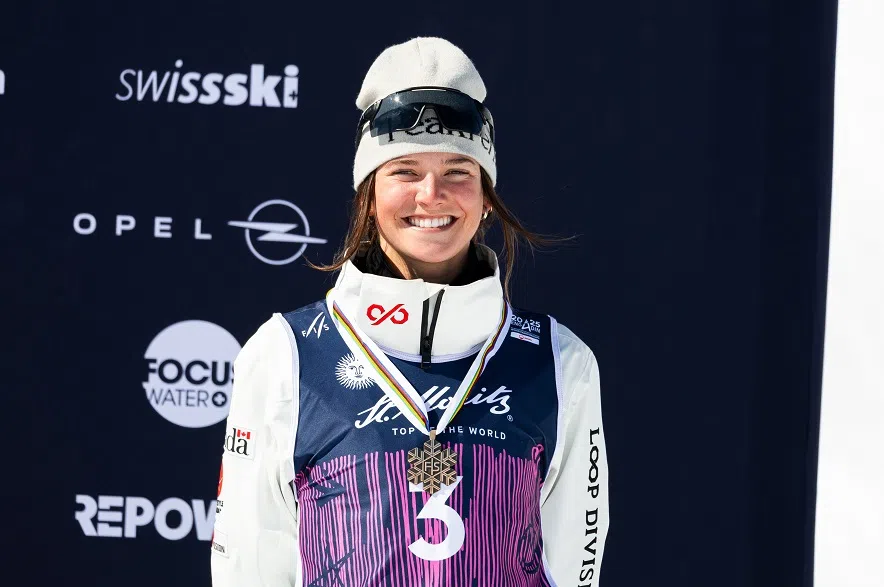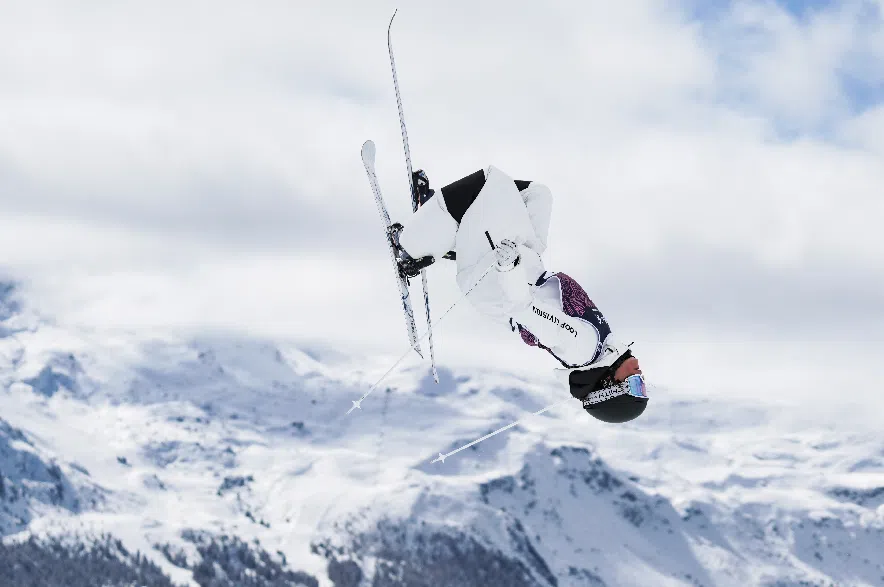Most of the athletes hailing from Saskatchewan at the Winter Olympics are likely curlers or hockey players.
But during the 2026 Olympics in Milan, Italy, Saskatchewan will be represented on the ski slopes of Cortina d’Ampezzo as well.
Read more:
- Saskatoon’s Blake Tierney sets new Canadian record at World Aquatics Championships
- MLB is calling up its first female umpire, promoting Jen Pawol for Saturday’s Marlins-Braves game
- Swimmer Summer McIntosh on top of world with four gold, one bronze medals
Saskatoon’s Maïa Schwinghammer will represent Canada in the moguls event at the 2026 games. She’ll become just the third skier from Saskatchewan to represent the province on the world’s biggest stage, joining Jim Hunter (alpine skiing, 1972 and 1976) and Andi Naude (moguls, 2018).
Saskatchewan isn’t exactly a skiing hotbed because of its lack of hills and distance from mountains, but thanks to Schwinghammer’s parents’ passion for the sport, she said she was able to pick it up from a young age. Her parents helped operate the Mount Blackstrap ski hill just outside of Saskatoon when she was growing up.
Listen to the story on Behind the Headlines:

Because of her world ranking from last year’s World Cup standings, Maïa Schwinghammer has already pre-qualified for the Olympics. (International Ski Federation/submitted)
“I could just roam free, skiing all day long. I spent all my weekends skiing there and caught the love to ski. I was lucky to have parents who also love to ski, so we were always doing little ski trips or driving out to Banff for weekends, and it kind of developed from there,” Schwinghammer explained.
“We used to go ski being towed behind snowmobiles on Christopher Lake,” she laughed.
Schwinghammer’s mom is from Montreal, where she grew up skiing, while her dad was a competitive skier. Growing up in Saskatchewan, he would work all summer just so he could afford to ski in the winter.
The goal of becoming an Olympic skier started at the age of eight for Schwinghammer, when she got to attend the 2010 Vancouver Olympics where her dad served as the chief of competition for some of the skiing events.
In Vancouver, Schwinghammer got to see her idols – skiers like Jennifer Heil, Mikaël Kingsbury and Philippe Marquis – as they competed to win medals for Canada.
That’s when she decided to turn her dream of becoming an Olympian into a reality.
“I was eight years old and watched Jennifer (Heil). Jen finished second there, and I was just like ‘Oh my goodness, I need to do this. I need to go to the Olympics.’ So it was a pretty cool kind of ‘aha’ moment for me. I definitely had caught the bug,” she explained.
As Schwinghammer grew older, she started competing and eventually earned a spot on the British Columbia provincial ski team before catching the eyes of the Canadian ski team in 2018, when she was 16 years old.
By earning a spot on the national team, Schwinghammer was able to secure her place at the international World Cup moguls circuit six years ago, competing against the best skiers in the world.
Finally, after years of grinding away and climbing the ranks of the skiing world, Schwinghammer was able to punch her ticket to the Olympics this past winter.
“It’s been quite the journey. I’ve been on the team for quite some time now, and I just missed out on the 2022 Olympics. I’ve made such progress in my development as an athlete since then, and I had a breakout season this year,” she explained.
“I finished fourth at the first World Cup. Fast forward to now, I have two World Cup podiums – a World Cup win and a third place at world ski championships – which is just unbelievable. It’s been quite the year.”
Because of her achievements this year, Schwinghammer was able to pre-qualify for the Olympics in 2026.
“To be pre-qualified is just such a relief,” she said. “It’s so cool.”
This winter, Schwinghammer won’t be spending much time in her home province, as she’ll be travelling the world and getting ready for the biggest event of her life.
Her team held a spring camp in Whistler earlier this year, and then travelled to Europe to ski on the glaciers. During the warmer months, Schwinghammer said the team will stay in Whistler to do water ramping.
The team will head to South America next month to start ramping up training for the World Cup season.











